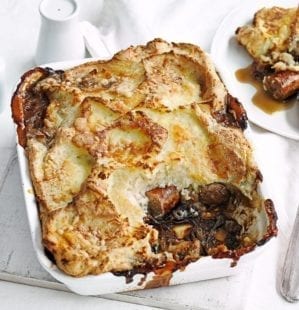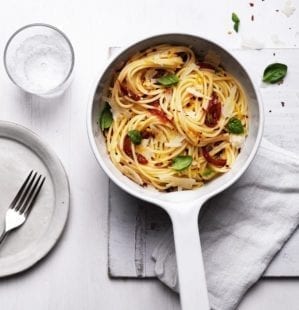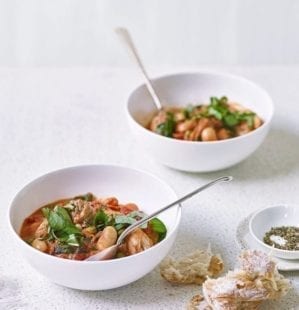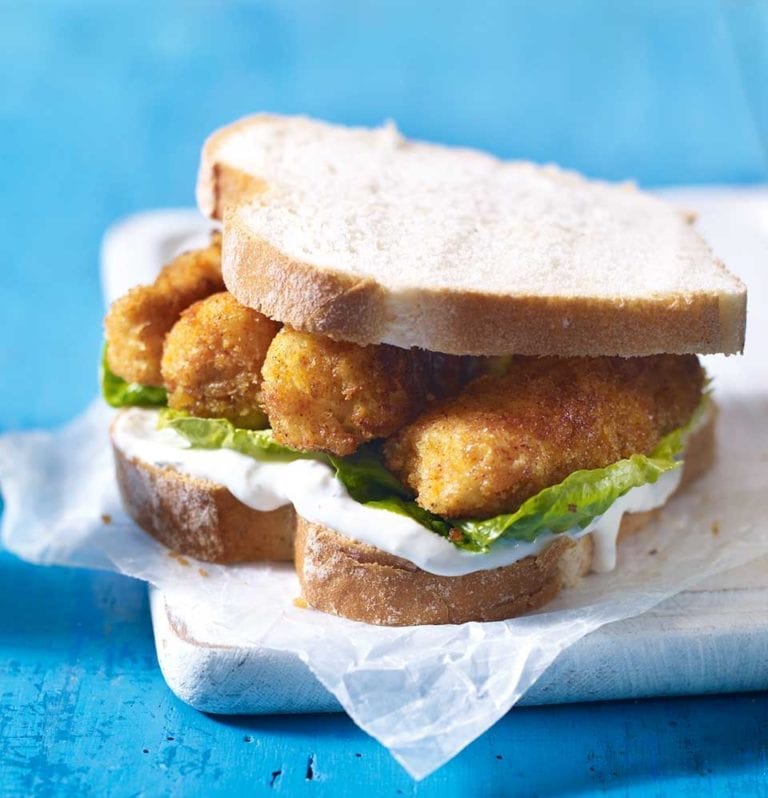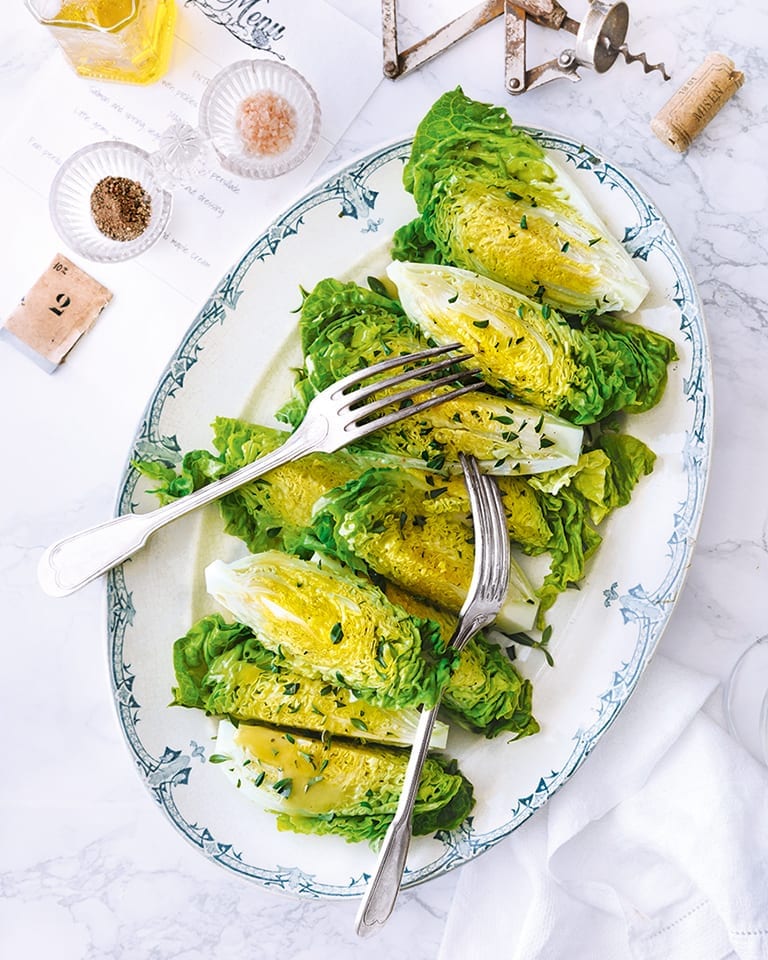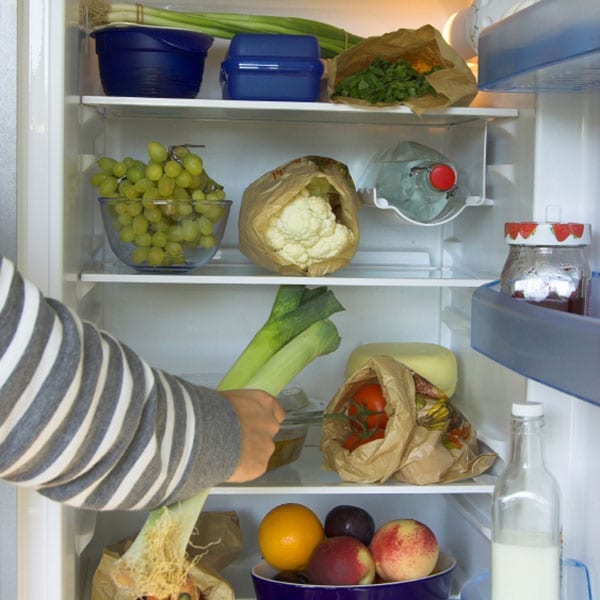Meet the chef who cooks what other people throw away
Dan Barber is the chef of the moment who’s getting diners to think hard about what they consider edible. He believes chefs need to be agents for change, as well as arbiters of taste – as Susan Low discovers.
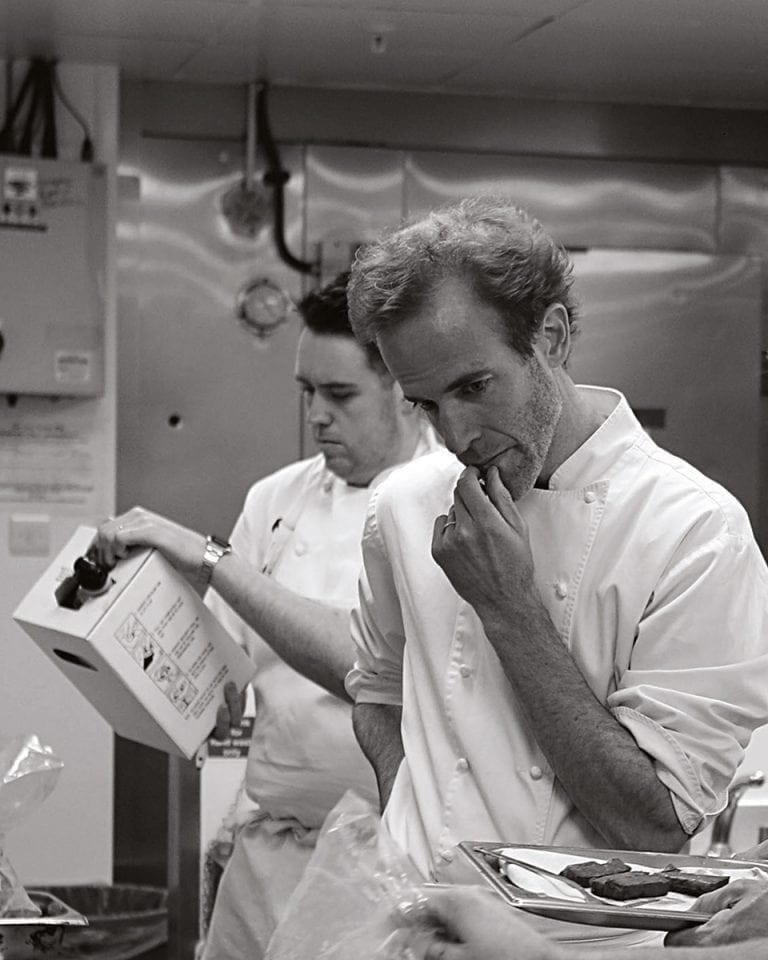
Long before the term ‘celebrity chef’ passed into common usage, chefs used to be people who cooked stuff in restaurants – just that. Not any more. Now they’re TV stars and cultural commentators, leaders of gastro-fashion and predictors of food trends; iconic figures who have a huge influence on how and what we eat. They are, literally, arbiters of taste.
And, increasingly, chefs are no longer just hanging around at the end of the food chain and serving up the fillet steaks and other prime cuts their customers demand. Instead they’re turning the tables on diners, challenging them to have a good hard think about what they’re eating (and not eating), and why.
Dan Barber is one such chef. He’s based in New York, where he runs two of the US’s most influential restaurants: Blue Hill, in Manhattan, and Blue Hill at Stone Barn in upstate New York – also a working farm and food-education centre. Barber hit the headlines in the UK earlier this year with wastED London, his spectacular pop-up on the rooftop of Selfridges. The menu was nothing if not thought-provoking, with dishes such as ‘waste rarebit’ made with stale bread, cheese trimmings and ‘off-grade’ apple chutney; and ‘spent hen broth’ made from an old boiler chicken and served with ‘ugly tortillas’ (irregular or damaged rejects) and rape greens, a prized food in many parts of the world, but largely ignored here. There were lettuce ‘butts’, fish bones, salmon skins, deep-fried seaweed and cauliflower ‘ribs’ – a smorgasbord of deliciousness made out of the cast-offs from supermarkets, Selfridges itself and a chain of UK suppliers.
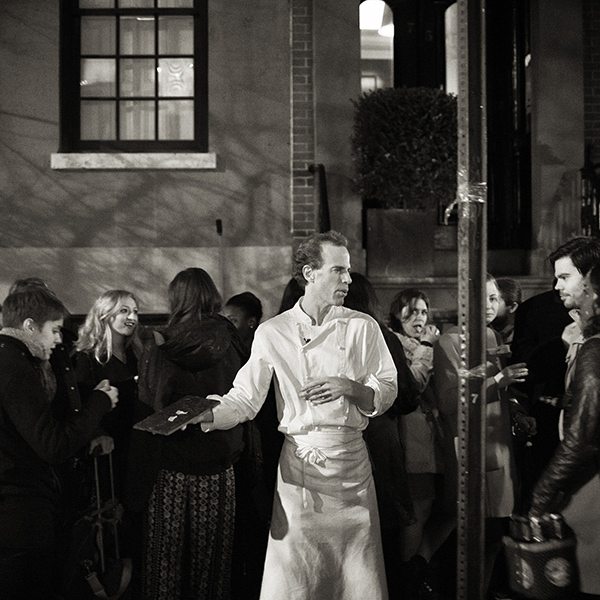
The waste outrage
It was a creative and, for the diner, challenging way to highlight food waste. Some of my fellow diners were perturbed by the sight of a huge cod’s head (usually chucked away despite housing such delectable morsels as the cheeks and throat) served with a modest bowl of kedgeree made with ‘broken’ rice. It was restaurant theatre, but with a serious point. “Ultimately,” Barber said, “the success and goal of wastED is for it to be done so well that it prevents other wastage events from happening. You stop calling these things waste because the culture changes.”
Barber’s cooking was executed and presented well, exceedingly so, but there’s a long way to go before things evolve to the point that feasting on such ingredients becomes the norm. Food waste is an issue that continues to dog the UK. According to waste and recycling advisory body WRAP, estimated annual food waste in the UK is 10 million tonnes (of which 60 per cent could be avoided) with a value of £17 billion a year.
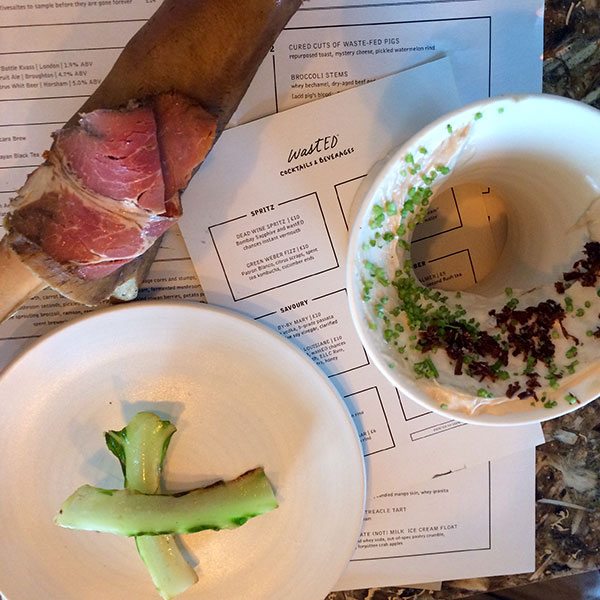
Households are responsible for just over 70 per cent of that waste (bread and fresh fruit and veg being two of the most commonly chucked items). In the hospitality and food service sector, WRAP estimates the amount of food wasted each year in the UK is equivalent to 1.3 billion meals, or one in six of the 8 billion meals served. Just over a third of that waste arises from customers’ plates.
So you could say anyone with a mission to tackle food waste has a lot on their plate. It’s a complex issue – something Barber, who wrote the influential book The Third Plate: Field Notes on the Future of Food, has thought deeply about.
“It gets very political,” he tells me. “I’m trying to shine light on it in the context of a menu, but someone who believes that food waste is a serious problem, then sits down to eat a 7oz steak for lunch or a 7oz piece of protein for lunch and dinner, seven days a week, is sending a contradictory message. To take 50 per cent of grain and feed it to animals so you can eat your steak dwarfs any kind of wastefulness of ‘ugly’ fruits and vegetables.”
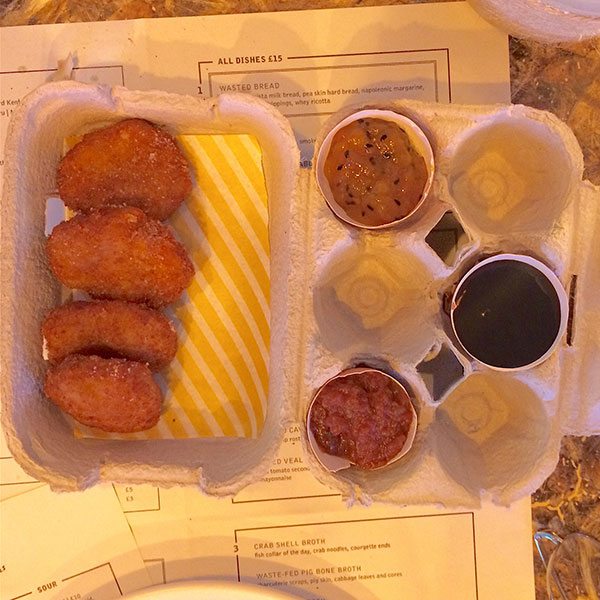
Chefs as agents for change
“We can’t think about changing parts of our [food] system,” argues Barber. “We need to think about redesigning the system.” And chefs, he believes, have an important role in shifting society’s behaviour towards a more sustainable way of growing, cooking, choosing and eating food, nudging consumers toward the metaphorical balance the ‘third plate’ the title of his book alludes to.
“Chefs will play a leading role, similar to that of a musical conductor,” he writes. They’re well placed for this role because, he says, “We’re the merchants of happiness – and that’s a powerful thing. We need to look at menus and patterns of eating that put a whole landscape together in a way that will last a lot longer than you or me.”
Sustainability, like charity, begins at home, and that means we all – everyone who cooks or dines out – also need to think about cooking and enjoying the things others throw away.
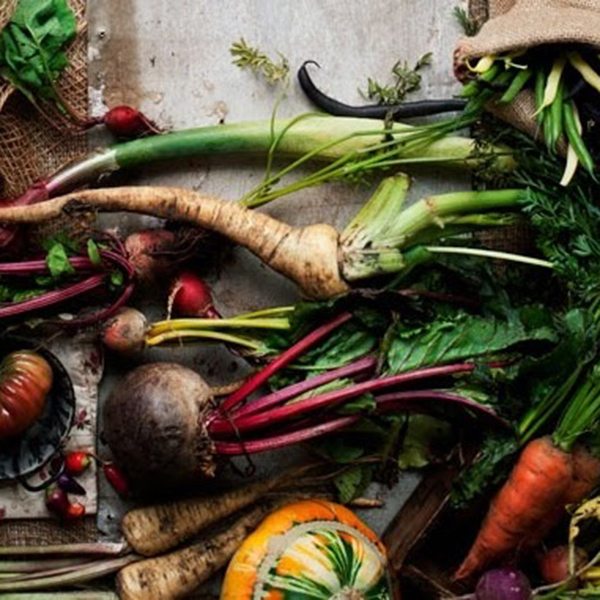
How chefs are helping to tackle food waste
Just about everyone is familiar with Hugh Fearnley-Whittingstall’s War on Waste but plenty of others champion change, too
Massimo Bottura: Food for Soul
The Italian chef has launched Food For Soul, a non-profit organisation that aims to promote awareness about food waste and hunger around the world. Massimo is scheduled to open a pop-up community kitchen for the homeless in London’s Earls Court this month, working in tandem with The Felix Project, a London-based charity tackling food waste.
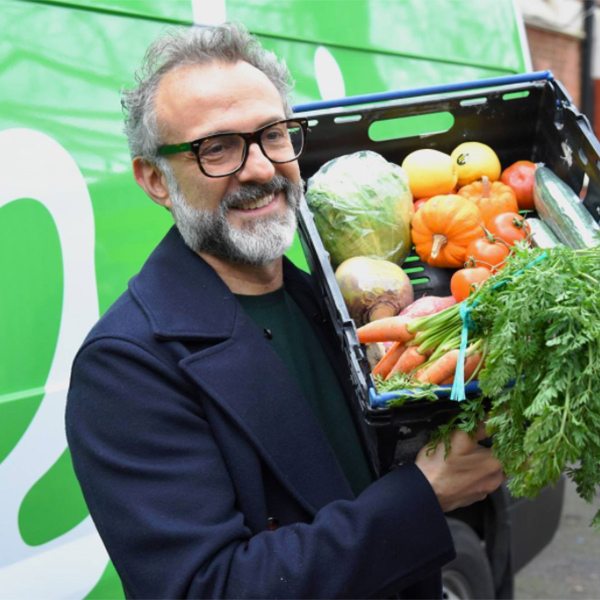
Skye Gyngell: Pre-theatre ‘Scratch Menu’ at Spring, London WC2
Dishes are made using trimmings, leftovers and overlooked bits. Three-course daily-changing menu (£20), 5.30-6.45pm.
Doug McMaster: Silo restaurant, Brighton, east sussex
As well as milling its own flour, churning its own butter, baking its own bread and pastries and minimising food miles, this ‘zero-waste’ restaurant sources locally, re-uses, ‘up-cycles’, composts and anaerobically digests to eliminate waste. And, yes, the food’s great.
Tom Hunt’s Forgotten Feasts
The eco-chef and food waste activist runs a roaming restaurant that supports ugly, unwanted and unloved foods, including a Christmas Forgotten Feast. He’s hoping to take the concept to Cape Town, South Africa, this year.

How you can do your (vital) bit
We’ve linked up with the Sustainable Restaurant Association to find the People’s Favourite Restaurant – your go-to place for food that tastes good, and does good too. Vote for your favourite shortlisted restaurant here. The overall winner will be revealed at the Food Made Good Awards in October.
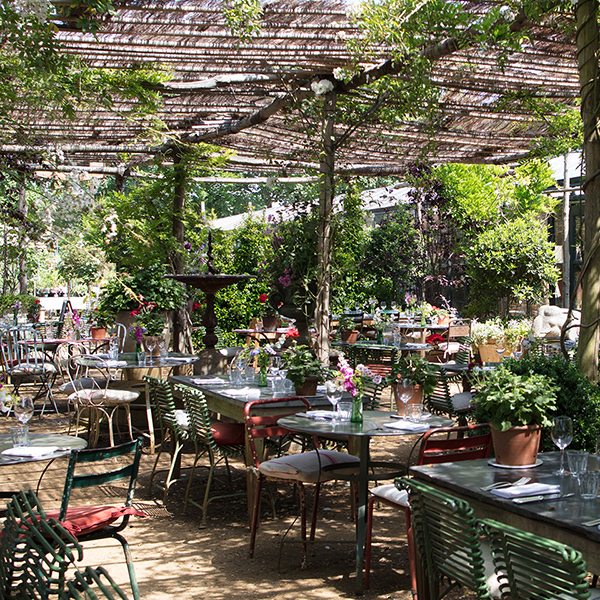
Want to reduce your waste?
- Visit lovefoodhatewaste.com for handy tips to help you save up to £60 a month.
- Sign up at toogood-towaste.co.uk and encourage restaurateurs to provide ‘doggy boxes’ to take home unfinished meals.
Subscribe to our magazine
Food stories, skills and tested recipes, straight to your door... Enjoy 5 issues for just £5 with our special introductory offer.
Subscribe
Unleash your inner chef
Looking for inspiration? Receive the latest recipes with our newsletter
